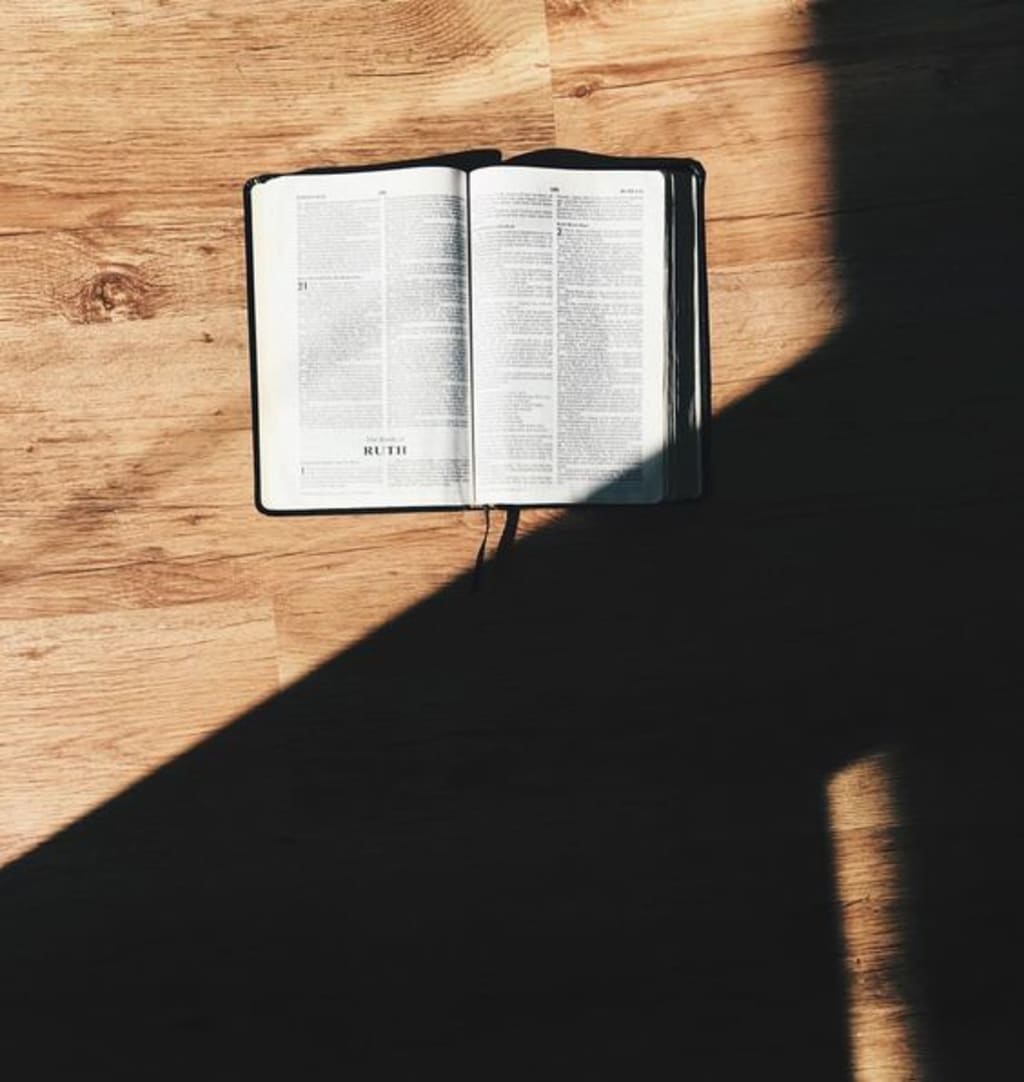Adult Separation Anxiety and Leaving a Controlling Religion
A look into the effects of leaving a cult-like religion and its link to adult separation anxiety.

The Holy Bible is, in my mind, a very cathartic and meaningful book. I do not feel any resentment towards the book over the way religion and the rueful exiting of religion has left me damaged. I am nothing but a believer in the bible and it's valuable truths regarding how to be a kind, loving, and humble person on the earth today. I have strong faith in the morals taught from this book, and I believe that if humankind were to take these morals to heart, then the world be a much better home for us all.
Being personally affected by the world of religion has sparked my interest in its close relation to mental disorders and generalized anxiety. I was raised in a male dominated religion, made up of around 8 million people in all parts of the world. The religion was all I knew for the better half of my life, it was like a family to me. The members are hospitable, loving, and genuine people. The leaders of the religion have left a bitter taste within me, but the logical side of my mind forces me to believe that like the religion's members (myself previously included), these men are simply misguided and living in fear.
I was fortunate to be involved with a religion that actually rejected the teaching of hellfire, but unfortunately, the cost of sin in this religion was worse than a burning hell. Choosing a path of "sin" was equivalent to making a conscious choice to be shunned by every member of your family, every friend you had, and anyone else mingled into that 8 million count.
Called "disfellowshipping," this would result in everyone you knew being told that you are no longer a member of the religion. With this, a universal rule was set into place that no member of the religion is to speak to you or be in your company. Due to the close proximity of association the religion held you in, everyone in your life was a member and you had no one else outside of this religion. Mothers, fathers, sisters, brothers... no bond was stronger than the fear of facing the same doom as the one "disfellowshipped" if you were to associate with them.
At the age of 18, I personally faced this dramatic exit and lost everyone in my life—officially pegged a sinner unworthy of the people you loved most. I was at a very delicate time of my own life when this change took place. Left with no one, I moved out of the area and attempted to start a new life. Luckily, I was "disfellowshipped" with the man that was my best friend, and soon-to-be husband. Rejected from the religion due to our untimely love, we decided to start our lives over together.
This is sadly not as easy as it may sound. Financially and secularly, this change was no trouble at all. We were both on our feet materially and were quickly able to arrange things secularly to have what we needed to survive on our own at very young ages. Mentally and emotionally, this change was the most damaging—specifically to myself as I was compromised emotionally due to memories of childhood abuse that had recently surfaced.
Left mentally ravaged as it was with the fear of abandonment that frequently comes with PTSD, I was now faced with an even more tangible fear of being alone. My own mother, who was forever my best friend, would not speak to me, look at me, or hold me any longer. I was now in fear of something that had already occurred to me once, left with further anxiety over the fear I would again lose the only people I cared about (which, at this point, was my fiancé—the only person left that knew me and cared for me). I experienced frequent bouts of panic over this, unnatural desires to never be home alone, anxiety to the extent I would miss work with the fear I would come home and be entirely on my own.
In prisons in almost every state, solitary confinement or isolation from human contact is used as a punishment. But the U.N. uses some stronger words, stating that torture is defined "as any state-sanctioned act by which severe pain or suffering, whether physical or mental, is intentionally inflicted on a person for information, punishment, intimidation, or for a reason based on discrimination." This study has gone on to show that the use of these tactics very often results in extremely debilitating symptoms that frequently include PTSD, fear, and paranoia.
It is no wonder that facing a rejection similar to a social isolation or "confinement" from everyone that you once had in your life is used as a device to incite change in members of this religion. It is further no doubt that this tactic results in severe anxiety and abnormal fear of loss in the rejected member. Called a "loving provision," this device is used by the religion to present the "lost member" with a remorse for the wrong that they've done, and as a result, return to the safety of this religion. Anything but loving—this teaching has instilled in me a doubt that such a god would even exist, and that if he did, he is certainly not "loving," if these are the tactics he would use.
Left fearful of further rejection, you are also repeatedly reminded in your exit that the loss of your family and friends is entirely your decision and your fault in the end. You are now left at the severe risk of self-worth problems due to being told all of this tragedy began and ended with you. If you are lucky enough to escape such a controlling system, you cannot be surprised by the emotional scars left on the other side. Even returning to the religion, you are silently looked down upon and forever esteemed as someone that abandoned people that cared for them in search of their own desires.
In an attempt to be heard and finally understood, I am writing this today to reveal the truth behind religions that claim to be loving and united in their organization. I do not write this in a vengeful or angry way, but simply to air my own suffering in hopes I can find peace again, and to hopefully shed understanding to those going through the same or similar social isolation that far too many people (minors included) have faced.
About the Creator
Via Writes
I am a journalism student and a lover of catharsis. I vow to write the raw, honest, and real truth about life as a woman, a fighter, and a survivor.






Comments
There are no comments for this story
Be the first to respond and start the conversation.